Why this Expat left Andalusia to live in La Rioja
I love an unfiltered opinion. Which is why I love this interview.
Michael lived in Andalusia but tired of the heat and the expats. He had a different vision of Spain. He’s found it in La Rioja. All about that in this interview.

Name: Michael Dobson
Age: 73
Country of Origin: UK – England
Number of years living in Spain: 10
Hi Michael! How did you end up in Spain? Can you tell us your story?
I worked abroad in various places as a teacher and lecturer, ending up as a Higher Education administrator in Sri Lanka. Micromanagement there ended my desire to work and I had to find somewhere for retirement. Finance (most of my overseas contracts were on local salaries) meant I had to find somewhere cheap to live where I could also get back to England relatively easily to see my family there. I looked on a couple of cost-of-living sites and it appeared that the south of Spain, particularly Andalucía, ticked most of the boxes of cost, ease of access to the UK, and good weather. We ended up about 10 miles inland of the Costa del Sol. Unfortunately, we found the intense summer heat (always at least a few weeks around and above 40°), plus what we found to be expat ghettos, difficult to live with. We moved to La Rioja just over two years ago and are completely happy – except that we now have winters with sub-zero temperatures!
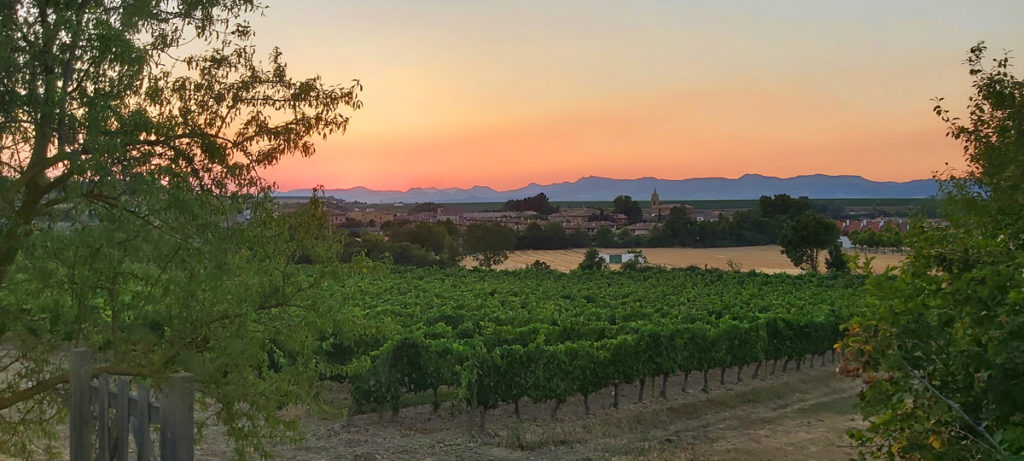

A few useful Resources
Private health insurance in Spain. We recommend Innoinsure, they make it easy. And you don’t need a Spanish bank account – you can pay with foreign credit cards. More info here.
Spartan FX. Buying a house or car in Spain and need to transfer and exchange a large sum of money? More here.
Wise. For everyday transfers and exchanges of money from your home country. Nobody should be using banks anymore. More here.
You ended up choosing to live in a small town called Haro in La Rioja. What is it about the town and/or region that made you choose it as a place to live?
Although we shall be moving into Haro in a couple of months’ time, we actually live on the edge of a village near Haro: Facebook won’t allow me to put the correct location in! Being on the edge of the village, as soon as we leave the house we are walking in fields and vineyards. This is essential for us; I personally need what is often referred to as the psychic space of nature, and on a more down-to-earth level, we need that access to walk our three dogs. In addition, there are next-to-no expats here, which means we’ve had to improve our Spanish and make friends among the local community, which we believe is as it should be. I’m sorry to say that I can’t stand the sort of person who comes to Spain and lives exactly as they did in e.g. the UK, watching English TV, getting English papers, eating English breakfasts, fish’n’chips, etc., complaining about how the local population don’t speak English. There were too many of those around where we used to live! ‘When in Rome’ is my motto. La Rioja is of course famous for its wines, and so I assumed (naïvely?) that it would have a very equable temperature range – this hasn’t proved to be the case, but the area is so beautiful and verdant in comparison to Andalucía that it more than makes up for the harsh winters (which aren’t really harsh in comparison to for example, Galicia, Aragón, and so on). We live in the Ebro plain, which is apparently known for its cold north wind blowing off the mountains, but we have driven out on scenic routes into the mountains and plains further away, and there is a wealth of different scenery withing 20 minutes in every direction.
Haro itself grew in importance after the phylloxera louse wiped out most of the French vines in the 19th century, so the Bordeaux wine shippers looked elsewhere for their grapes. The train station here provided easy access to the Atlantic ports of Santander and Bilbao.
You mentioned having previously lived in Andalusia. What made you decide that you needed a change in scenery?
See above! Summer heat and too many expats! 😉 I suppose one downside of the move is that prices for the menú del día and general eating out here are considerably more than we were paying, although perhaps the pandemic has made these prices rise a lot everywhere in Spain.
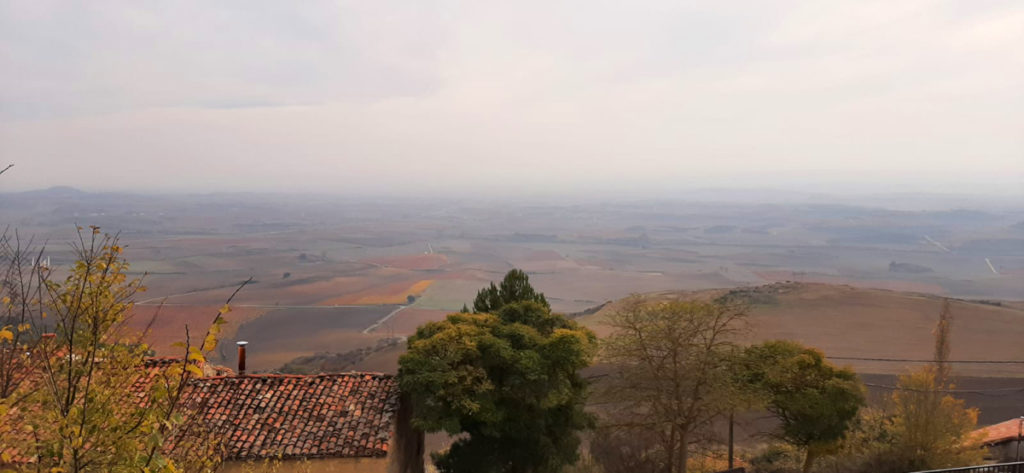
Having lived in both Andalucía and La Rioja, how do you think the people are different between regions?
As I’ve said, there are far more expats in Andalucía; whether non-resident ‘snowbirds’, as the Americans call them, or resident Brits in particular. I found that many of the long-term residents there came as odd job men before the financial crisis in 2008, learned a few things extra, and call themselves electricians, plumbers or builders, but actually have no qualification for that. It does mean that most of the expats we encountered there are blue collar workers, and they rely on the expat communities for work: people who can’t speak any Spanish and so can’t and won’t employ local Spanish workmen. Concomitantly, there is little demand for culture there, and as I was an academic and classical musician who used to live in the cultural world, I didn’t fit into the community.
We’ve made friends among the local population here in and around our village and in Haro, and it’s good to be greeted, either verbally or just with a wave of the hand from passing tractor drivers. The only times we came across the local Spanish where we lived in Andalucía was in the seafront bars, where they had learned the necessary English to communicate with their clientele, or in the local ferretería. Even the village shop recruited English-speaking staff.
One thing I would add that is different between Andalusia and La Rioja: housing is very different. Here there is very little rented property available; what there is is expensive in comparison to Andalucía and seems to be flats rather than unifamiliar (detached) or even adosada (terrace). There has been no campo housing to rent in the time we’ve been here.
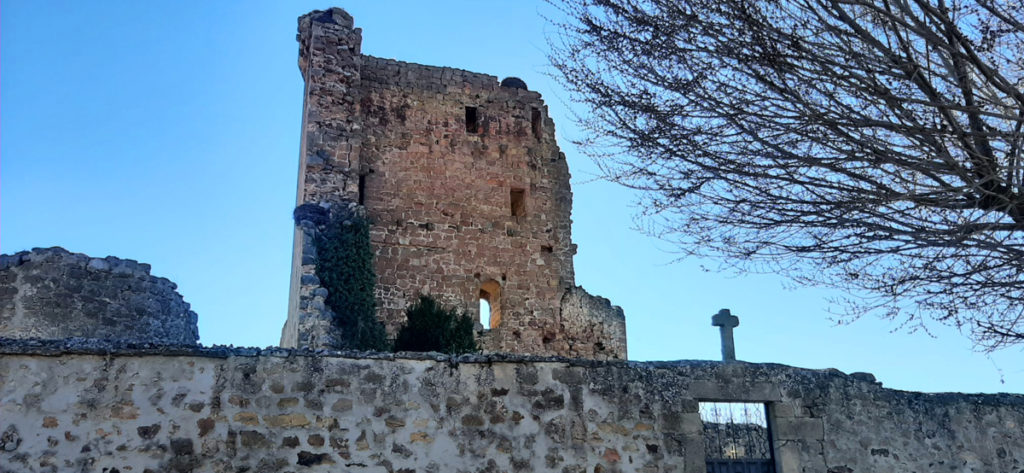
Are there any unique traditions or festivals that stick out for you in La Rioja?
Anything to do with wine! Every village has a wine festival, it seems, and Haro itself has The Battle of Wine, where it’s thrown at everyone walking around – sometime in the summer, from memory. Our village, like many others, has six bodegas (two of which belong to large multinational chains), and there’s a week coming up where talks on wine are given every day (in Spanish, of course). Next week, we shall be going to a celebration of wine in Haro, which has a different theme every year (this year, it’s the Wild West), and the wine flows freely.
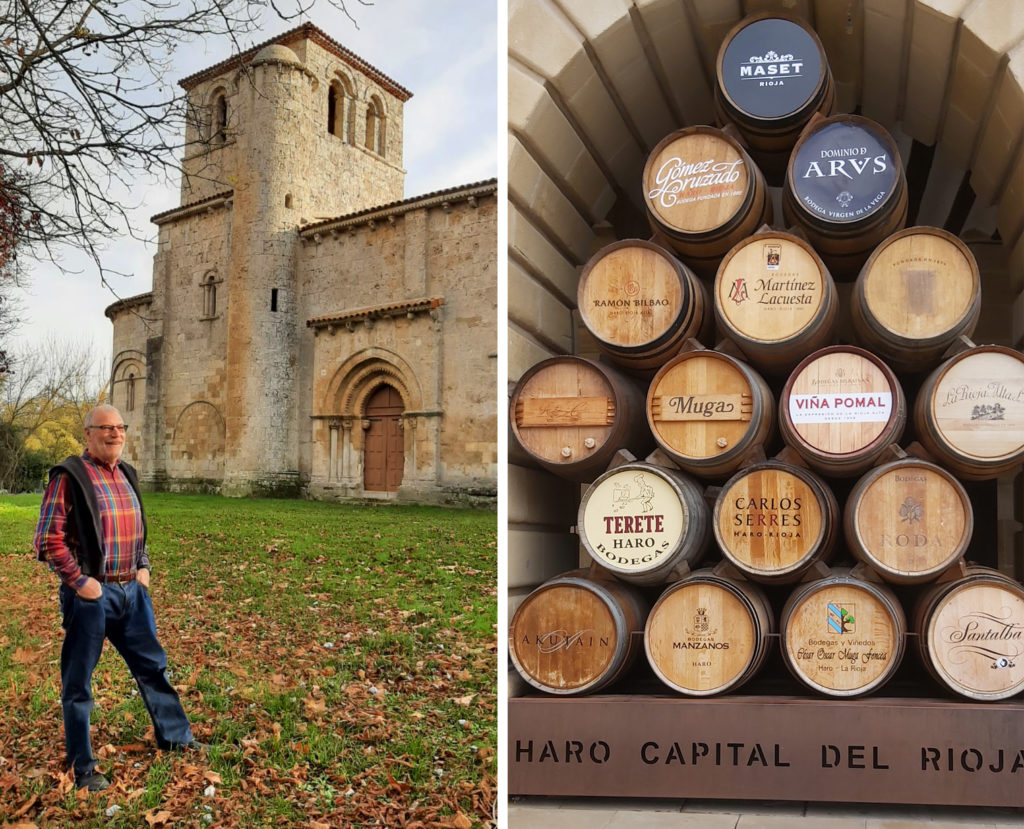
Can you tell me about what you’ve been through adjusting to life in Spain? Was it hard for you to integrate when you first arrived?
We found anything to do with bureaucracy nigh on impossible at first. I had no idea how difficult many things would be. I’m sure you’ve seen the YouTube video of a lady dealing with bureaucracy! The most difficult to start off with was that my future wife arrived on a visit visa (she’s Sri Lankan, no British); before we came, we assumed she could do that and get a resident visa with no problem. How wrong we were! She was actually arrested at one point for being an illegal immigrant and I was allowed no access to help her, but a court-appointed lawyer freed her within an hour or two. Then we went through the pareja de hecho process, but this never worked. Eventually we appointed a lawyer to help us get married, but he was useless and failed at his task despite our paying him in advance. He passed us on to a second lawyer who also took our money but failed to make any progress. Eventually we succeeded through the good offices of a local English woman who knew the local JP, but even he took a year to get things done, so it was only after 5 years had passed that we managed to get married.
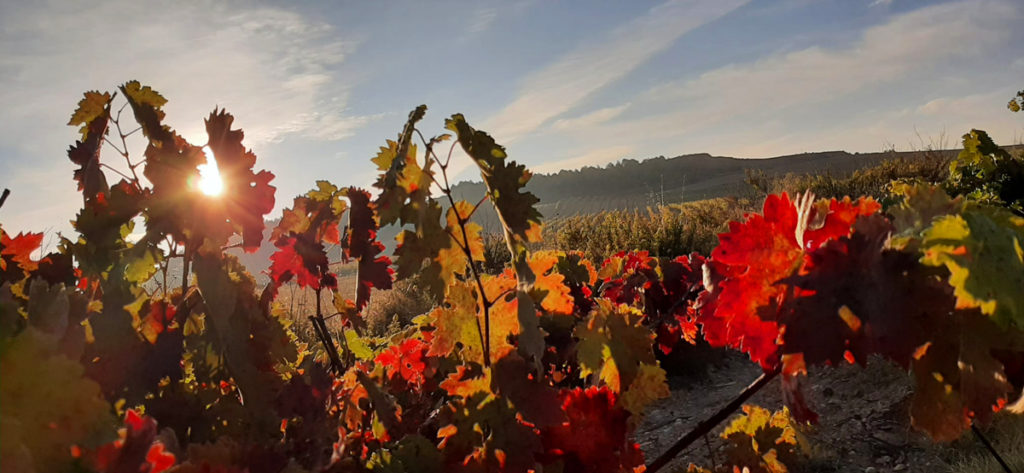
What do you do to keep busy in Haro? What’s your daily life like?
As I’m retired, I don’t need to go out, but I walk the dogs every day. We have three dogs now (one adopted us soon after we came here, walking into the garden, and he is hyperactive, so needs a lot of exercise; he also has to be walked separately from the other two). I suppose that my wife and I each spend almost two hours a day walking them. During the winter, when it’s cold and dark in the evening, I use the internet to keep up with current affairs (and Facebook!) and we watch TV for a couple of hours in the evenings: mainly cookery shows like Great British Menu and MasterChef, or crime dramas such as Silent Witness or Bosch. My wife teaches English privately to local students, mainly children. We go out in the evening once a week or more to Haro to have drinks, bocaditos and coffee with a group of Spanish friends there, and often have lunch here in the village on a Friday or Saturday when they cook.
We also love exploring our surrounding regions – Burgos and Soria provinces in Castilla y León, the Basque Country, etc. I love to drive out on back roads which seem never to have any other traffic, in some of the least populated areas of the country.
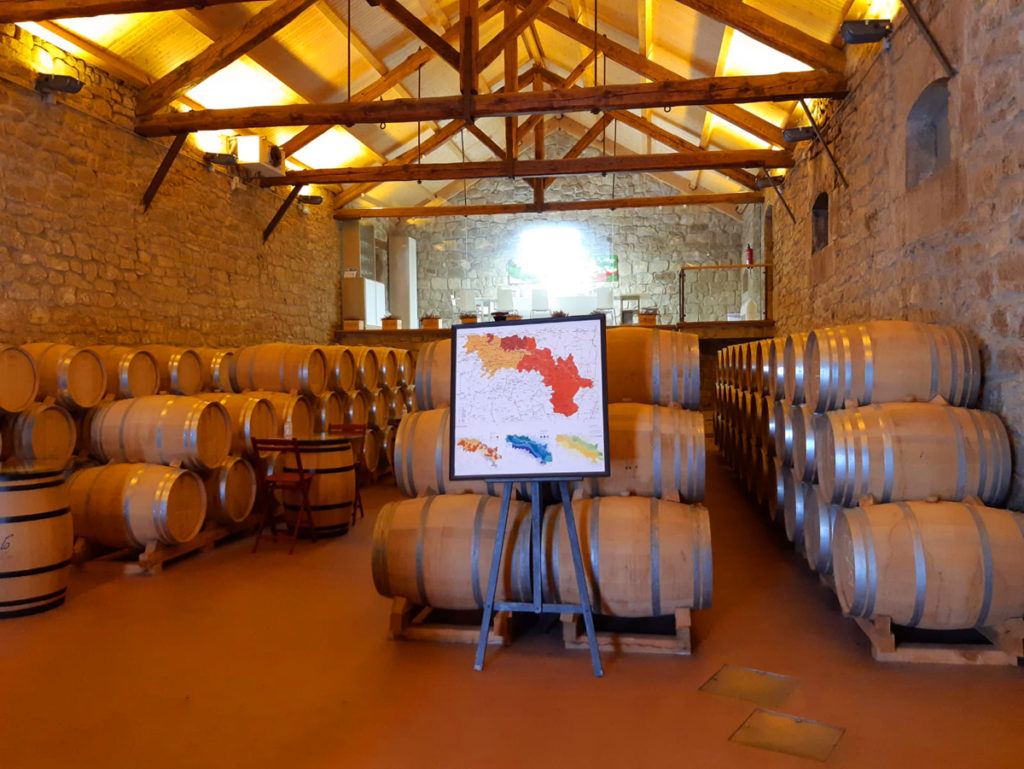
You’ve been in Spain over 10 years now. What have you learned? Would you have any tips for foreigners looking to come to Spain?
Understand that people are different and different people have different needs. In the same way that you can’t take anyone else’s word or recommendation on food or drink, because you might not like it, so people have different needs regarding things like communities, weather and so on. You might like the heat and sun, but might not like the people who also go to those regions just for that; on the other hand, you might want either to be in an expat community, or away from one. Know yourself before you move. If there’s a certain sort of person you like or hate, that sort of person is likely to be where you move to in Spain unless you research and ask questions. Most of all, don’t assume that because things happen in a certain way in your home country, they happen exactly the same here in Spain. For example, most government offices such as the Jobseekers office in England will have signs up in many languages (16?) offering help with translation if you need it. Here, you’re on your own. If you don’t speak Spanish, they’ll tell you to go away, get a translator (which you have to pay for) and come back.
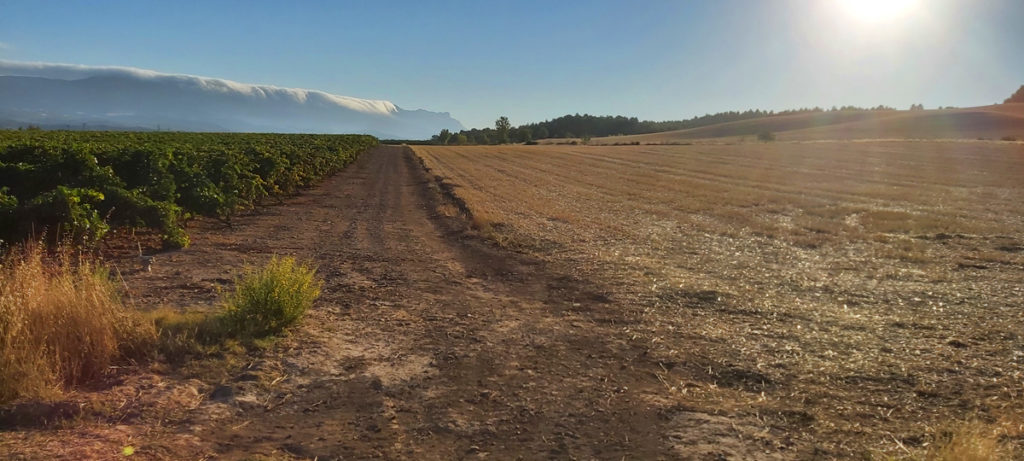
Do you have any regrets at all Michael? If you had to do it all over, would you change anything?
To be honest, I’m a Francophile. I used to speak fluent French and travelled there extensively on holiday throughout the 90s; I’d prefer to live there! But one has to be pragmatic, and the cost of living is much higher there. Also, since Brexit, it’s become impossible to be resident there.
I do miss the warmth of Andalucía, but I don’t miss the heat or the parched brown surroundings and the lack of rain (our local reservoir there was down to 16% before we left). Also, the newer houses, although they have a/c inverters which mean that the bedroom and sitting room at least are cool in summer and tolerably warm in the winter, are mostly shoddily-built breezeblock construction. There are always problems of one sort or another with the developments – we have lived in six houses there. The traditional village houses have thick walls and fireplaces, and are therefore easier to keep warm in the winter; the downside is that windows are smaller, and they are darker and dingier.
Would I do it all again? Undoubtedly, but I’d do far more research first of all! Every part of Spain seems to have its drawbacks as far as weather goes – too hot summers or too cold winters. There is no part that doesn’t have one or the other (for me, at least). Sun (and heat) worshippers will love Andalucía or the Costa Brava, for example; lovers of more temperate climates will love the Northern regions. It seems that only dedicated Madrileños love Madrid and the central region, as there is both too hot in summer and too cold in winter!
Thank you for doing this interview, Michael!
Related: What’s it like living in Burgos?
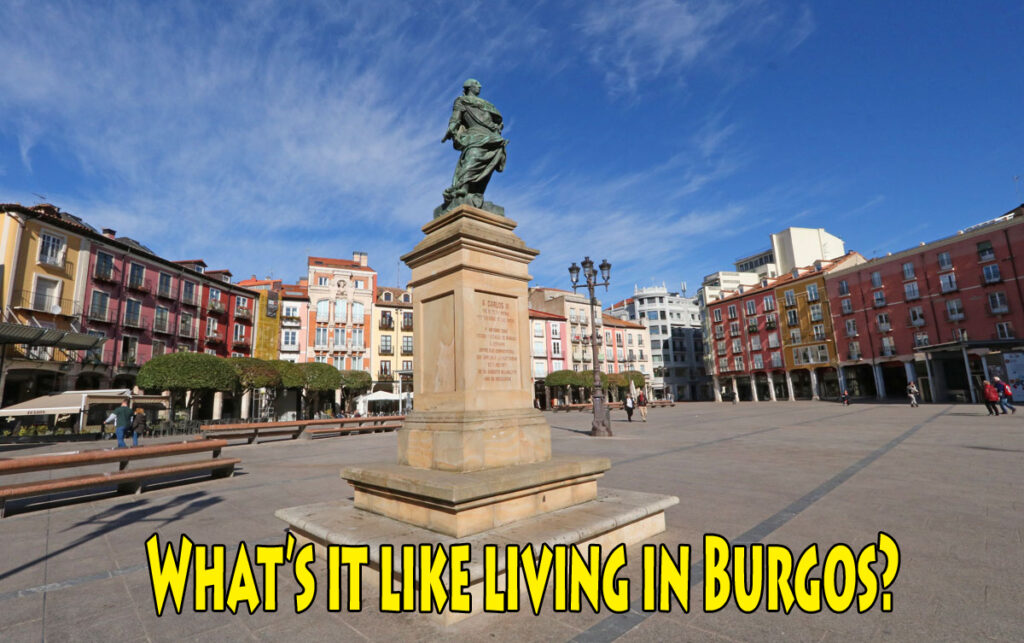
Related: What’s it like living in Teruel? (Aragon)
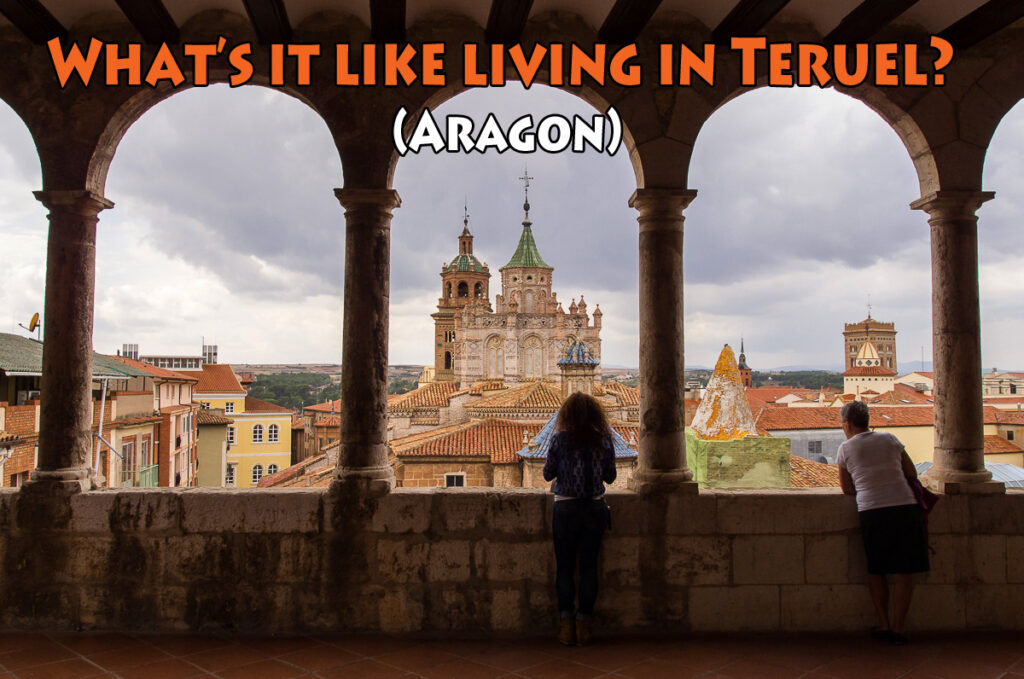

My wife and I came and visited Galicia in a motorhome and travelled around for 9 months before finding our traditional Galician farmhouse.
We knew what we wanted in regards to no expats , being rural and not in a city and being able to practise our Spanish daily. We had moved from the UK after retiring early fed up with the lack of community , rude aggressive people , houses being built all around and the general costs of everything.
We were so disenfranchised with the UK we decided to move to Spain and have fallen in love with where we are.
People are so friendly ,helpful and trusting. Community is a big thing here with everyone looking out for one another even us as foreigners.
Winters are warmer here than the UK with temps rarely dipping below 8 degrees and minus figures few and far between. We actually couldn’t he happier and really landed on our feet with the people around us.
Thank you very much Michael, very nice story. Sometimes I wonder, like right now when it’s in the high 30’s here in Andalusia, if Galicia is where we should be. My wife can’t take the weather.
Andalucia is a large place, and most of it is very unlike what is suggested here. It’s experienced decades if discrimination – let’s not add to that
Mabilica – Andalucia is a large place but what Michael is describing is very accurate when describing both the coasts and some of the inland communities. To say that it’s not is just sweeping things under the rug.
If you don’t agree then you’re free to make your argument. But I’m not going to censor someone just because you don’t like their opinion.